If your internet connection drops when downloading large files on your Windows PC, this article will help you. This can be frustrating when it comes to downloading large files because it takes a lot of time to download large files with slow internet speed. There can be many reasons why this issue occurs. In some cases, the problem is associated with a particular website. Use the suggestions provided in this article to fix this issue.
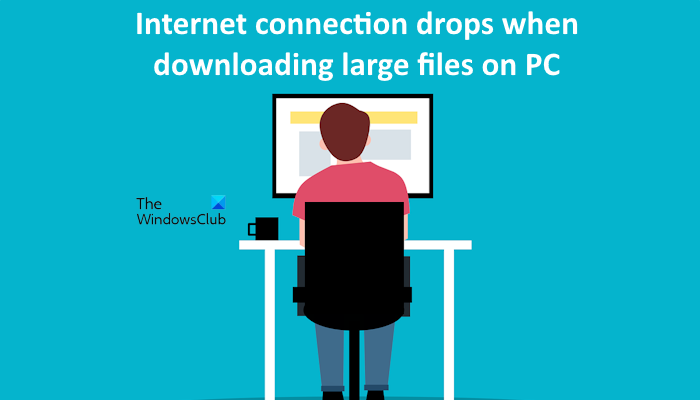
Internet connection drops when downloading large files on PC
The following fixes will help you if your internet connection drops when downloading large files on your Windows PC. Before you proceed, we suggest you check if you have marked your internet connection as a metered connection. If yes, revert the changes.
- Power Cycle your WiFi router
- Enable IPv6
- Update or reinstall your WiFi driver
- Run the Network and Internet Troubleshooter
- Reset TCP/IP, flush your DNS cache, and reset Winsock
- Switch to Google DNS
- Temporarily disable your antivirus
- Check your internet connection sharing setting
- Disable your extensions
- Use free Download Manager software
- Disconnect from VPN and disable Proxy (if applicable)
- Troubleshoot in a Clean Boot state
- Perform a Network Reset
- Use another internet connection (if available)
Let’s see all these fixes in detail.
1] Power Cycle your WiFi router
Power cycling the WiFi router can fix temporary glitches. We suggest you perform this action and see if it helps. Follow the steps provided below:
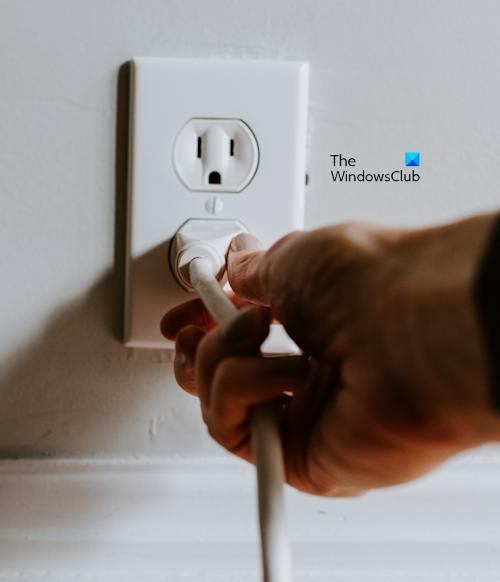
- Turn off your WiFi router.
- Unplug its power adapter from the wall socket.
- Wait for a few minutes.
- Plug the power adapter into the wall socket and turn on the router.
- Wait till the router connects to the internet.
Now, see if you can download the large fees without any drop in the internet speed. We also suggest you connect your system to the internet via an ethernet cable.
2] Enable IPv6
IPv6 or Internet Protocol version 6 is an important part of the Windows operating system. Microsoft does not recommend users to disable this feature. If you do so, some Windows components may not function properly. Check if it is disabled on your system. If you find it disabled, enable it.
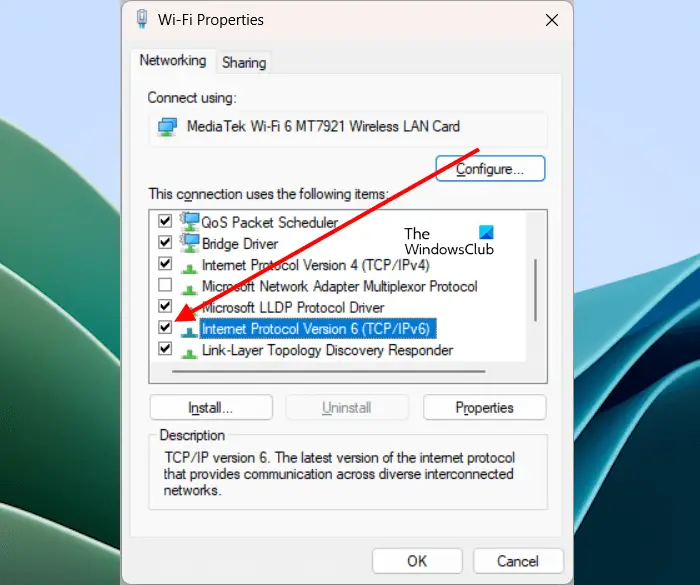
The following instructions will guide you on this:
- Open the Control Panel.
- Select “Network and Internet > Network and Sharing Center.”
- Click on your internet connection.
- Click Properties.
- Scroll down and select the Internet Protocol Version 6 (TCP/IPv6) checkbox.
- Click OK.
- Restart your computer.
Read: Chrome crashes or freezes when downloading a file
3] Update or reinstall your WiFi driver
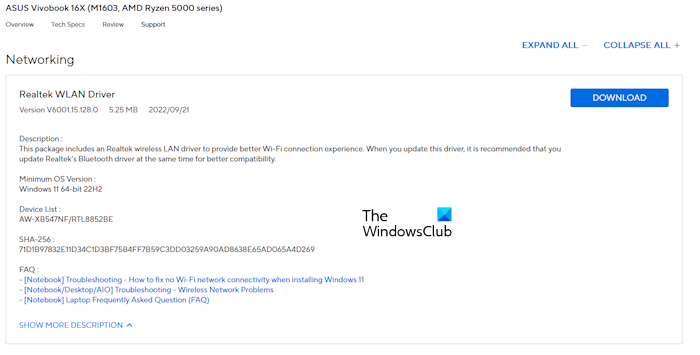
We also suggest you update or reinstall your WiFi driver. You can download the latest version of your WiFi driver from the official website of your computer manufacturer. After downloading the driver, install it by running the installer file.
4] Run the Network and Internet Troubleshooter
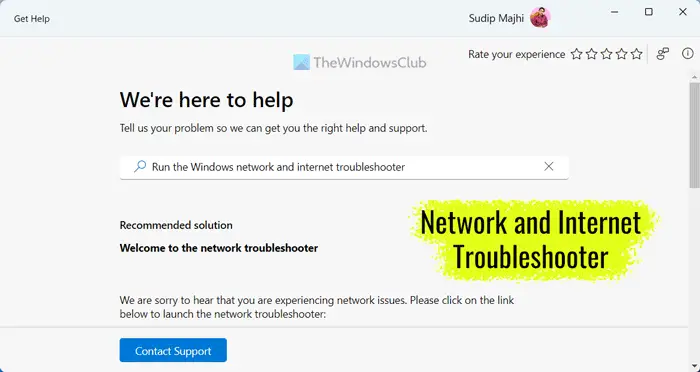
The Network and Internet Troubleshooter in Windows 11/10 computers helps users troubleshoot and fix internet connectivity issues. You can run it through Windows 11/10 Settings or the Get Help app.
5] Reset TCP/IP, flush your DNS cache, and reset Winsock
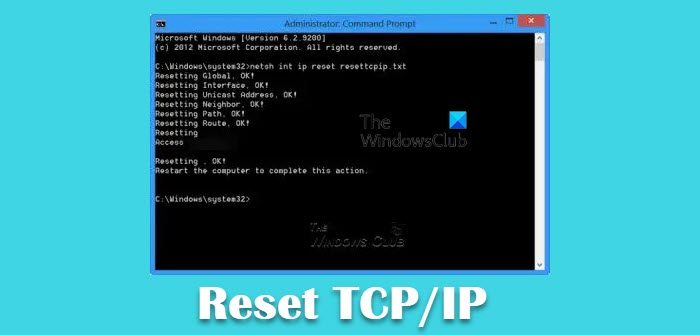
Corruption in Windows Sockets, DNS cache, and Internet Protocol can lead to various Internet issues on a Windows computer. We suggest you reset TCP\IP, flush your DNS cache, and reset Windows Sockets, and see if this helps. You can do so by executing a command in the elevated Command Prompt window.
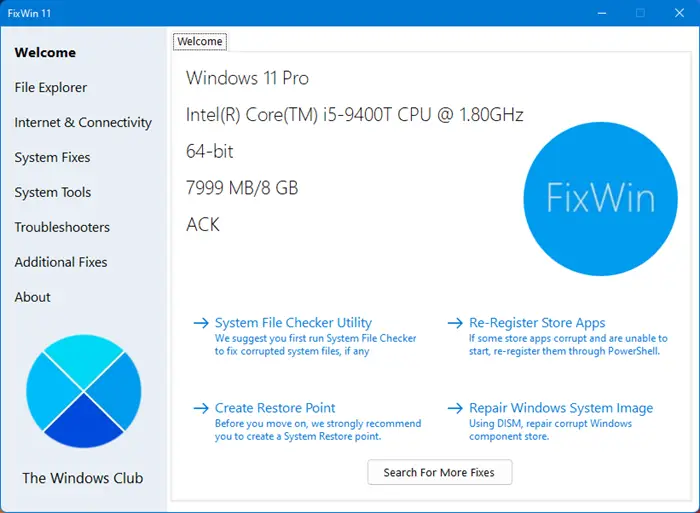
If you are not familiar with the Command Prompt, you can use our FixWin 11 utility for the same. Its simple user interface will help you perform all these actions easily.
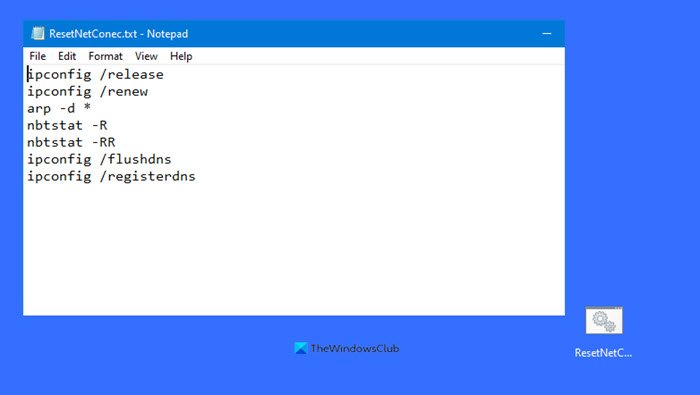
Alternatively, you can also create a batch file to perform all the above-mentioned operations with a single mouse click.
6] Switch to Google DNS
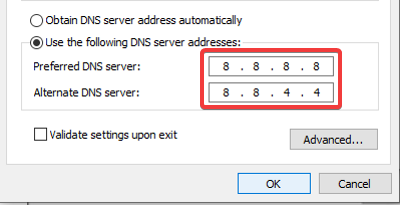
By default, Windows uses the DNS server of your Internet Service Provider. If you are experiencing issues with the internet speed, switching to the Google Public DNS can help. It is a free global Domain Name Server service offered by Google that users can use in place of the DNS server of their ISPs.
7] Temporarily disable your antivirus

Sometimes, antivirus programs conflict with Windows applications and cause issues. We suggest you disable your antivirus and then try to download the files. See if your internet connection drops this time or not. If this works, your antivirus is the culprit of this problem. In this case, you need to contact your antivirus vendor support. If you are using a free antivirus, you can switch to another one.
Read: Computer crashes when downloading Large Files or Games
8] Check your internet connection sharing setting
If your computer is connected to the LAN, check whether you have allowed your computer to share the internet connection with other computers on the LAN. Follow the steps below:
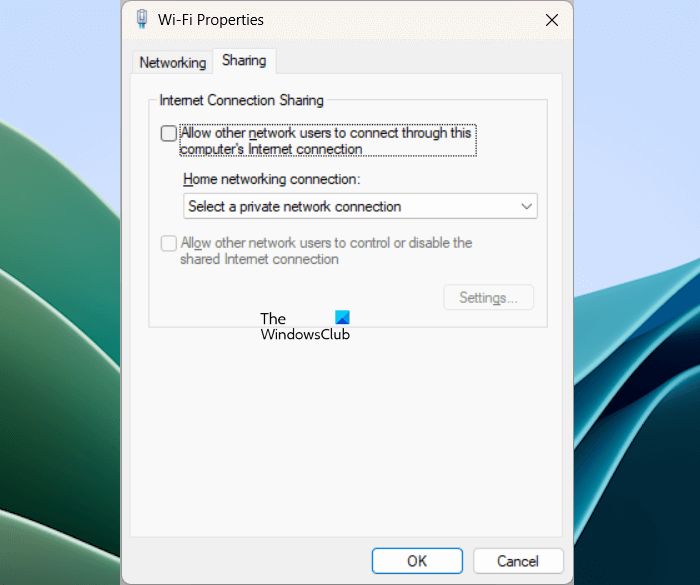
- Open the Control Panel.
- Go to “Network and Internet > Network and Sharing Center.”
- Click on your internet connection.
- Click Properties.
- Go to the Sharing tab.
- Uncheck the following checkboxes:
- Allow other network users to connect through this computer’s internet connection.
- Allow other network users to control or disable the shared internet connection.
- Click OK.
9] Disable your extensions
The extensions installed on your browser might be the culprit of this issue. To check this, disable all your extensions and then download the file. If this works, you can find out the problematic extension.
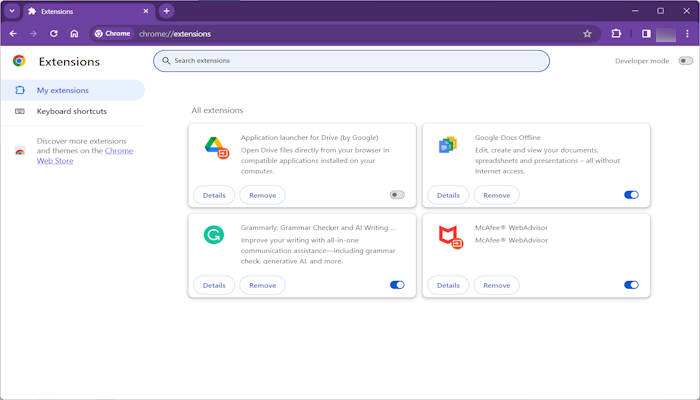
For this, follow the steps below:
- Enable an extension.
- Download the file. See if the internet speed drops. If not, pause the download.
- Enable another extension and resume the download. Now, see what happens.
Repeat the above steps until you find out the problematic extension. You can also try downloading your file in another web browser.
10] Use free Download Manager software
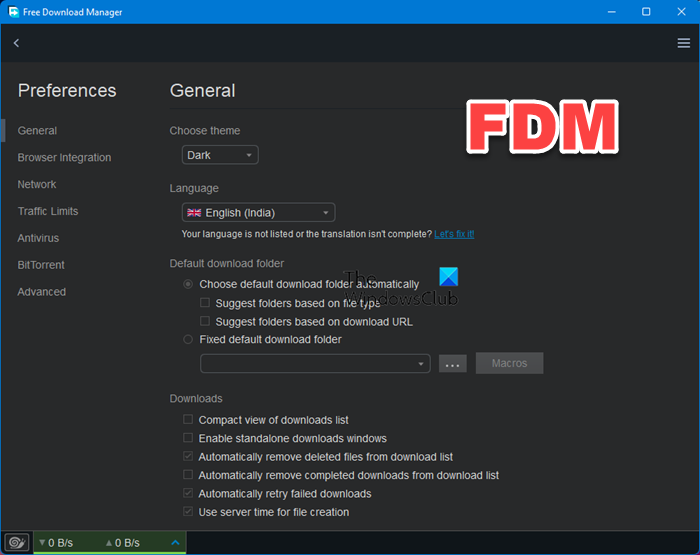
Download Manager software can accelerate your downloads. One way to deal with this issue is to install the Download Manager software. A lot of free Download Manager software are available on the internet for Windows 11/10 computers.
11] Disconnect from VPN and disable Proxy (if applicable)
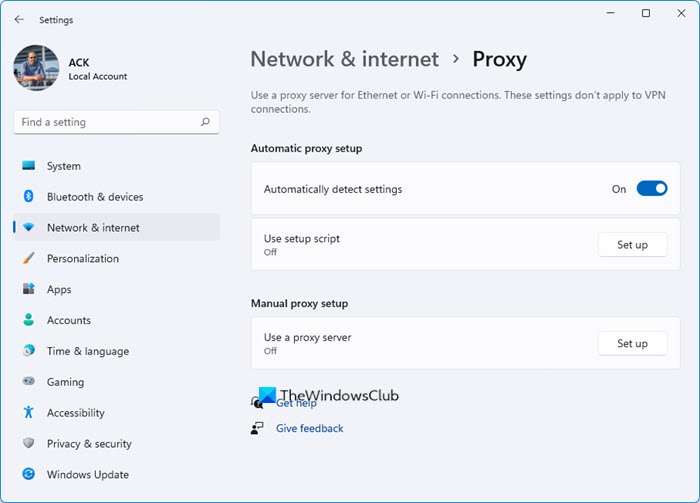
A Virtual Private Network makes an internet connection secure but sometimes it causes issues with internet speed. If you are connected to a VPN connection, we suggest you disconnect from it and see if it helps. Also, disable Proxy (if applicable).
12] Troubleshoot in a Clean Boot state
If the bandwidth-hogging programs are running in the background, they will impact your internet speed. We suggest you start your computer in the Clean Boot State and then download your files. See if the issue persists. If the issue does not persist, you can continue downloading your file in the Clean Boot state.
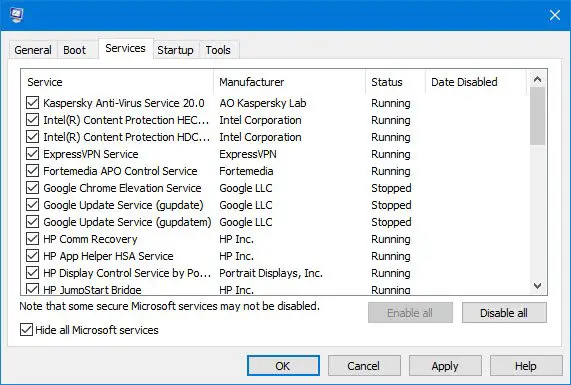
You can also troubleshoot in the Clean Boot state to find out the problem background application and service. But this process will take time.
13] Perform a Network Reset
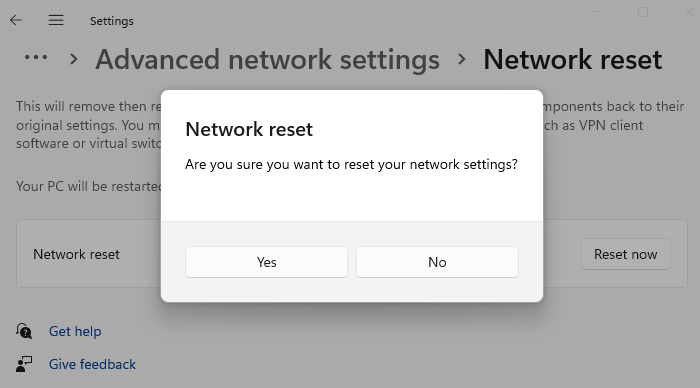
Resetting the network resets the networking components to default and also reinstalls the network adapters. This step fixes the internet connectivity issues on Windows computers. You can perform a Network Reset and see if it helps. Before you perform this action, save all your work because this step requires a restart.
14] Use another internet connection (if available)
If another internet connection is available, switch to that internet connection and see if the problem persists. If not, contact your Internet Service Provider to address this issue.
That’s it. I hope this helps.
How can I download large files without interruption?
To download large files without interruption, the basic thing that you need is a high-speed and stable internet connection. It will be better if you connect your system to an ethernet cable. Moreover, you can also use the free Download Manager software to get faster downloads.
Why do I lose internet connection when downloading games?
Usually, this issue occurs when your internet connection is unstable. In addition to this, a corrupt WiFi driver, a corrupt DNS cache, and a problematic extension are also responsible for this problem. Sometimes, a VPN connection drops the internet connection speed.
Read next: Internet keeps disconnecting when playing games on PC.
Leave a Reply